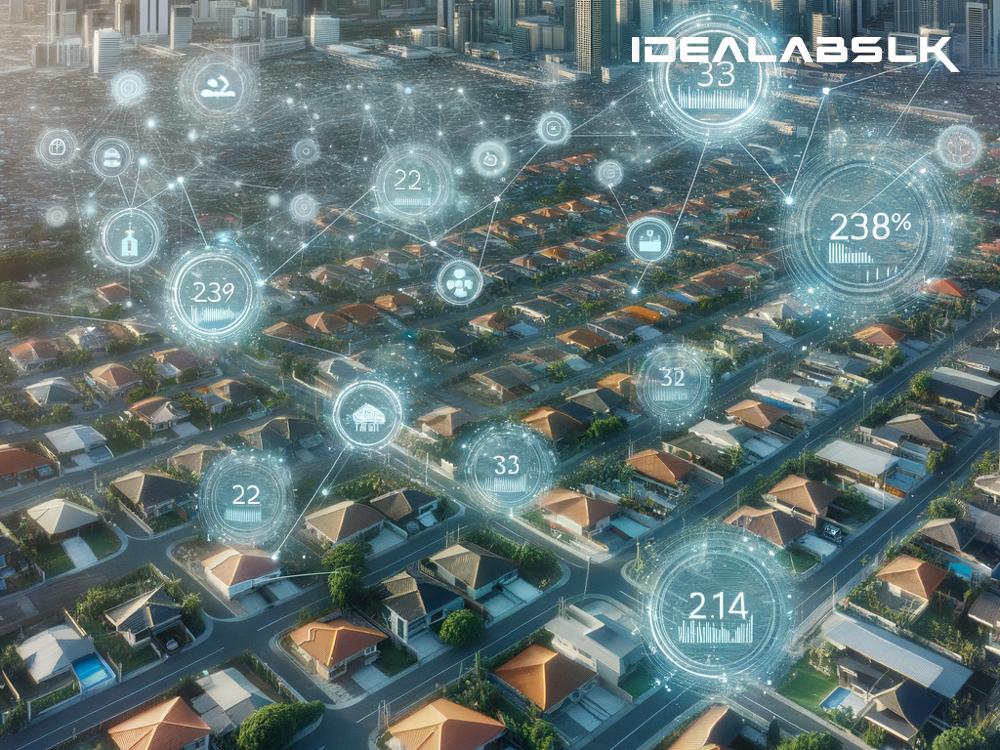Simplifying Real Estate Valuation: The Power of AI and Big Data
In the world of real estate, understanding the true value of a property has always been a mix of art and science. For decades, real estate professionals have relied on a combination of gut instincts, manual calculations, and comparative market analyses to estimate a property's worth. However, the rise of Artificial Intelligence (AI) and Big Data is revolutionizing how we approach real estate valuation, making the process more accurate, efficient, and accessible.
What are AI and Big Data?
Before diving into their role in real estate valuation, let's break down these tech buzzwords into simpler terms. AI, or Artificial Intelligence, refers to the capability of machines or computer programs to think, learn, and make decisions similarly to humans. Big Data, on the other hand, is a term for large and complex datasets that standard data processing software can't handle efficiently. When combined, these technologies can analyze huge volumes of information and recognize patterns that humans might miss.
Transforming Real Estate Valuation
Traditionally, real estate valuation has been a time-consuming process, requiring extensive research into comparative properties, local market trends, and property specifics. However, AI and Big Data are changing the game by:
-
Enhancing Accuracy: AI algorithms can quickly analyze vast amounts of data, including past sales, neighborhood trends, and economic indicators, to predict a property's value with a high level of precision. This minimizes human error and subjective judgment, leading to more reliable valuations.
-
Improving Efficiency: What once took days or weeks can now be done in a matter of hours with AI-powered tools. These technologies can sift through enormous datasets effortlessly, providing real-time valuations that keep pace with the rapidly changing real estate market.
-
Uncovering Insights: Big Data analytics can reveal trends and patterns that aren't immediately obvious. For instance, AI can identify how changes in local infrastructure, like the addition of a new public transport line, might affect property values in the area. These insights can be incredibly valuable for investors and homeowners alike.
-
Facilitating Accessibility: With AI and Big Data, professional real estate valuation services are no longer the only avenue for obtaining accurate property assessments. Numerous online platforms and apps now offer instant property valuations, making this information more accessible to the general public.
Real-World Applications
Across the globe, real estate professionals are leveraging AI and Big Data in innovative ways. For example, some companies are using drone footage analyzed by AI to assess property features and conditions that might affect value, such as roof integrity or landscaping quality. Others are developing machine learning models that can predict future property values based on current market trends and economic indicators.
Moreover, AI-driven platforms are helping investors analyze rental yields, vacancy rates, and other critical factors at scale, empowering them to make more informed decisions. This is particularly useful in the commercial real estate sector, where the stakes—and the potential rewards—are significantly higher.
Challenges and Considerations
However, the integration of AI and Big Data in real estate valuation is not without its challenges. Data privacy concerns, the need for continual algorithm updates, and the potential for technology-driven market disruptions are issues that need careful management. Additionally, while AI can process and analyze data, the human touch remains invaluable, particularly in understanding local market nuances and maintaining ethical standards.
The Future of Real Estate Valuation
As we look forward, it's clear that AI and Big Data will continue to play a crucial role in real estate valuation. The next frontier includes further integration of technologies like blockchain for data security and transparency, augmented reality for virtual property tours, and the Internet of Things (IoT) for real-time property condition monitoring.
In summary, AI and Big Data are not just transforming real estate valuation; they are redefining it. By making the valuation process more accurate, efficient, and accessible, these technologies are empowering professionals and property owners alike. As we embrace this digital revolution, the key will be to balance technological advancements with human expertise, ensuring that the future of real estate remains both innovative and grounded in the realities of the market.
In a world that's rapidly advancing technologically, understanding the value of a property is no longer just about the number of bedrooms or the size of the yard. It's about harnessing the power of AI and Big Data to gain deeper insights and make smarter decisions. Welcome to the future of real estate valuation.

